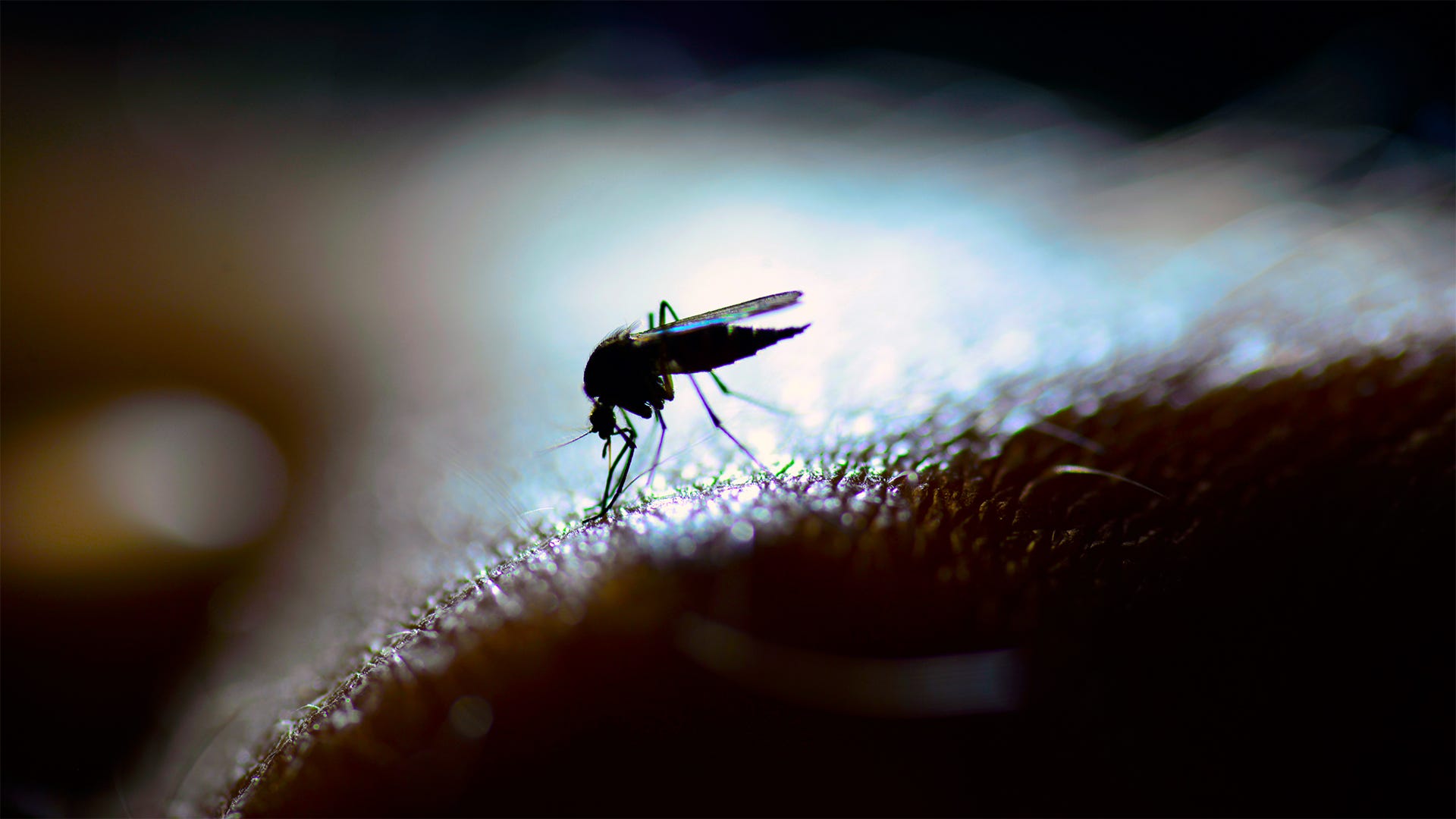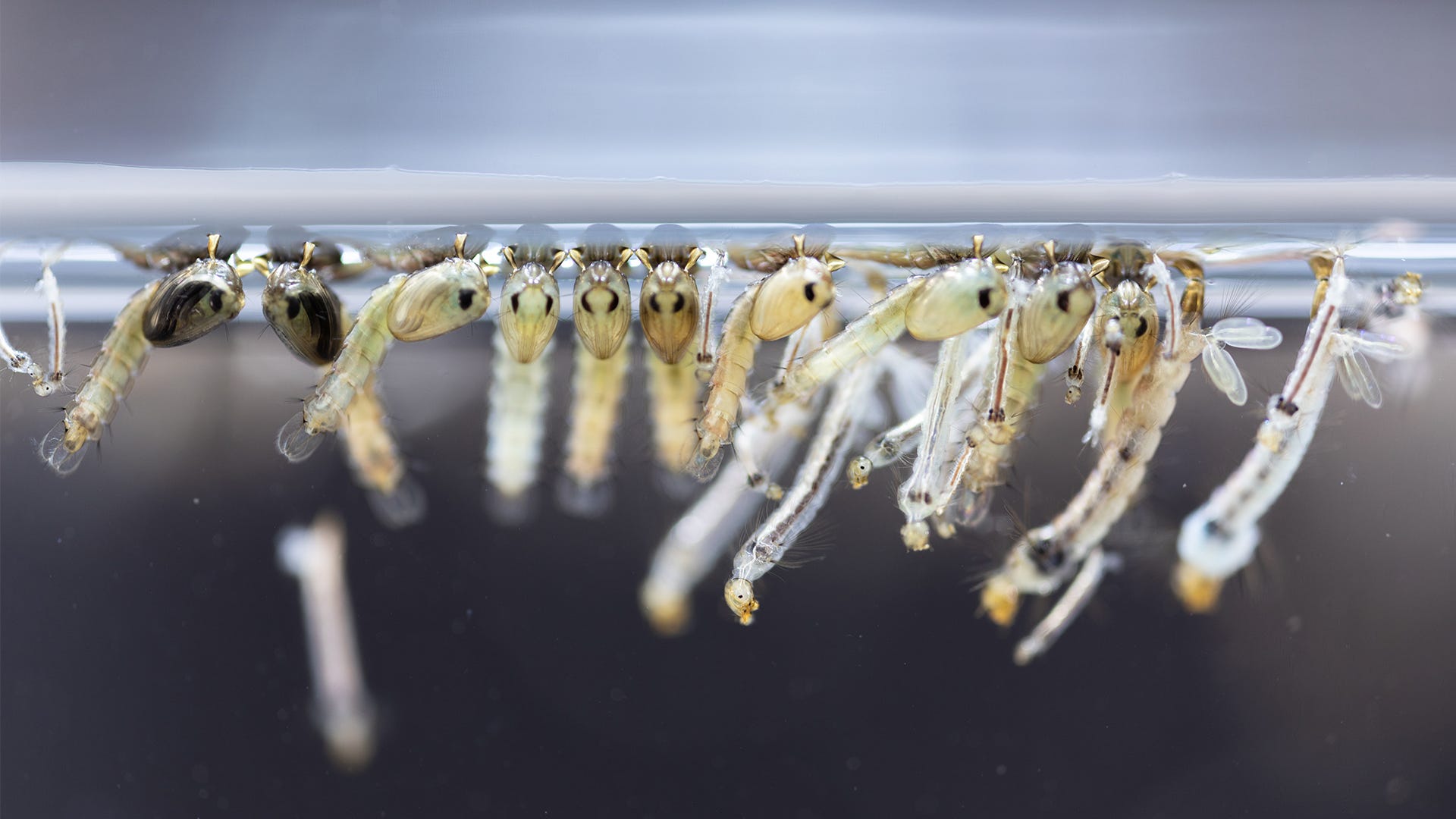
Of the many different species of rodents found throughout the world, mice are some of the most adaptable when it comes to habitat and diet. Since the dawn of time, it seems that these rodents have been a persistent nuisance to humans. Unfortunately, mice will eat just about anything that humans do, which often leads to mice living uncomfortably close to and even inside our homes. While the mice might be perfectly happy to coexist with humans, the opposite is not usually the case.
If mice have invaded your surroundings, you might be wondering what they eat once they have taken up residence. Alternatively, if you noticed rodent activity outside of your home, you may be wondering what attracted them to your house in the first place. The answers are right in front of us. Those dirty dishes in the sink, the overflowing trash cans, the piles of leaves in the yard, or the food in flimsy packaging in your pantry or cabinets. Whether you want to admit it yet or not, humans are great at absentmindedly providing shelter, protection, and food to these pests.
What Food Sources Attract Mice?
They might not live long, but they sure make the most of their short lives through their eating habits. While their stomachs are smaller than half of a human thumb, they do lots of nibbling and gnawing. Mice can eat several grams of food per day. Couple that with the fact that when there is one mouse, there are surely many you haven’t seen and those grams can add up quickly. But what are these rodents eating?
Plants
Most people think of nuts or cheese when asked about a mouse’s diet. However, rodents will eat a variety of plants. Bigger plants are usually consumed more often by rats, but almost anything is fair game for rodents in your yard. Plant seeds, small plants, fruits, vegetables, grass, twigs, leaves, and bark are all common elements of a mouse’s diet.
Grains & Seeds
Grains, seeds, oats, and any other food source that falls under this category are big attractants for mice. Regardless of whether they are stored for later use or attached to a plant mice will try to gnaw their way to them. In your home, mice may be attracted to the grain or seed smells wafting from your pantry and cabinets. Cereals, boxes of oats, and even baking ingredients are favorite snacks for rodents.
Fruits & Berries
Ranking high among rodents’ favorite food are fruits and berries. In the wild, mice consume these foods at every opportunity. Fruit or berry bushes can serve as magnets for rodents who love the easily accessible food source. The smell and sweetness attract rodents closer to your home and can contribute to an infestation.
Nuts
Mice love to eat nuts and are not very particular about what kind. Peanuts, walnuts, almonds, and hazelnuts are all on the menu. Nuts are very high in protein, which is highly favorable to mice on the hunt for the best meals they can get their paws on.
Meat
This might not be the first food that comes to mind when you think of mice, but mice will consume a variety of meats. While it is not their favorite food, they will chow down if the opportunity presents itself. Don’t worry, mice do not hunt for meat, they simply scavenge what meat is already laying around.
Garbage Scraps & Trash
Humans throw away a staggering amount of trash and leftovers each year. While it might seem like garbage to us, to mice it’s a feast. Mice will dumpster dive for scraps of nearly any food we throw away.
Pet Food
If your pet will eat it, chances are mice will too. This is not limited to the food you put in their bowls. Any birdseed, treats, hay, or even fish food will interest a mouse.
By-Products
Products that have been made from animal or food by-products, such as leather, can attract mice. If the scent is strong enough a hungry rodent will start gnawing. Even if the product is not edible, a mouse will eat it if it is hungry enough.
Salty & Sweet
The high sugar and protein content found in sweet and salty foods are huge treats for mice. Common items like jerky, gumdrops, crackers, and chocolate will send mice running towards your home if they can smell it.
Tips
- Maintain a clean lawn to minimize the spaces where mice can find shelter.
- Keep your food in secure bins to reduce the chances of mice chewing through packaging.
- Protect trash cans from being raided by securing the lid to the can
- Dirty dishes should be cleaned soon after going in the sink to avoid the smell attracting rodents
- Protect your pet’s food by storing it in a sealable container.
- Consistently sweep up birdseed that falls to the ground from feeders to prevent attracting mice.
Get Rid of Mice Effectively
Victor® has developed a variety of options that will help you on your way to eliminating your mouse problem. With relatively little effort on your part, you can effectively rid your home of mice with these different types of products.
Live Traps — The Victor® Tin Cat® Mouse Trap allows you to capture multiple mice in one trap. After several have been caught, release them in a more appropriate setting.
Electronic Traps — Victor® Electronic Mouse Traps humanely kill up to 100 mice per set of batteries, making it an ideal choice when facing an infestation.
Rodenticides — The Victor® Fast-Kill® Brand Bait Stations come in disposable and refillable designs to match your needs. The palatable bait keeps rodents coming back for more until they’ve taken a lethal dose.



